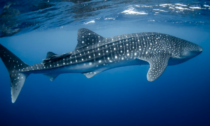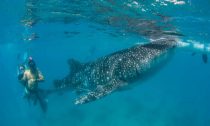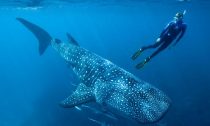
The largest fish in the ocean is a globe-trotter that can occasionally be found basking in the coastal waters of the Panamanian Pacific. However, little more is known about the habits of the whale shark (Rhincodon typus) in the region. By satellite-tracking the whereabouts of 30 of them, scientists from the Smithsonian Tropical Research Institute (STRI), the Anderson Cabot Center for Ocean Life and the University of Panama explored the factors influencing this endangered species’ behavior.
The R. typus, like other large sharks, may take years or even decades to reach maturity and reproduce, making them vulnerable to population declines, especially when combined with human threats...
Read More





Social Profiles